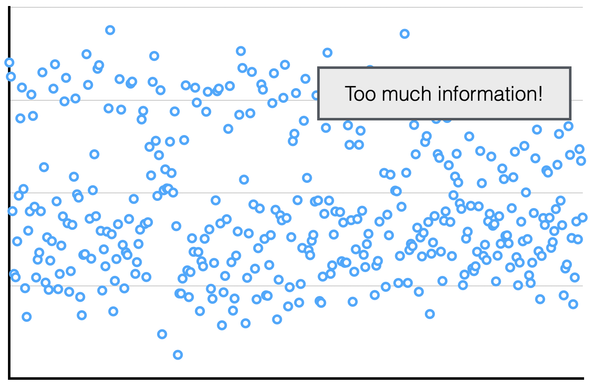Simplicity as a business strategy
Simplicity is difficult to achieve. Complexity works its way into our relationships, the way we communicate, the way we frame problems, and the solutions we build. Complexity creeps.
Simplicity is a difficult pursuit but it has immense value. Relationships of all types are complex but their foundations are simple; respect, empathy, friendship, kindness, love. Communication that is clear and concise achieves its end better than run-on sentences peppered with acronyms and jargon. Solutions too, are best when they are simple.
If you can't explain it simply, you don't understand it well enough. - Albert Einstein
Traditional business logic trends toward building more; offering more features than the competitors. More does not equal better. Complex solutions to the original problem produce new problems. A system designed to reduce costs and save time is ill served if it replaces time saved with new admin and maintenance tasks.
The advantages of simplicity as a business strategy are framed nicely in “Blue Oceans”, a book I’d recommend to anyone building a product, starting a small company, or competing in a large market. Red Oceans are where the monsters swim and to compete you must outperform by offering more features, faster, and for less. Blue Oceans offer opportunities for solutions with less competition because they approach a problem from a unique perspective, they operate outside the boundaries of existing markets where competition is smaller and there is room to grow.
One way to place yourself in a blue ocean is to tackle complexity. What is everyone else doing that we can cut? Which solutions or features taken for granted by your competitors can be eliminated? If you just don’t do those things, what opportunities does that open for you? Can you reduce the costs of your solution and maintain the value to your customer?
Here is an example from one of our products; BlackFox helps restaurant operators manage their sales, cash, and tips. One of the questions I get a lot from prospective customers is, “Which POS systems do you integrate with?” The resulting conversation is a good one; where I say that we don’t integrate with any POS systems and explain why that’s a good thing.
Every restaurant has a Point Of Sale system. Not integrating with POS systems was a key design decision, a choice for simplicity over complexity that benefits the product in several ways;
- BlackFox is agnostic - it doesn’t matter which of the dozens of major POS systems a client uses or which version they are running, BlackFox works with every POS there is!
- Reduce set-up and costs - Integrations cost development time that increase the price of the product and they take time to set-up
- Eliminates errors - There a myriad of ways staff can mess up entries in the POS, like closing to the wrong payment type. While I’m a fan of data capture there are benefits to placing a human break in the machine chain. Why would you want to perpetuate errors all the way up your business chain until some of the highest paid people in the organization, bookkeepers and accountants, have to correct it?
Simplifying design comes with trade-offs. You can’t get something for nothing, but when we analyzed the down-sides to not pulling data directly from the POS it cost a manager 60 seconds a day. One minute each day is required for a human to review the POS numbers and enter them into the system. It was a huge win at a minimal cost.
Deciding what not to do is as important as deciding what to do. - Steve Jobs
Complexity creeps. It takes work to produce simplicity and the war against complexity never ends. Instead of trying to outpace the competition by offering a better solution to the given problem redefine the problem. Look for a solution with the smallest footprint that addresses the issue. What is everyone else doing that offers little value? What advantages are there to just not doing that?




